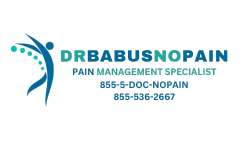Overview of
Regenerative Medicine
Regenerative medicine is a rapidly advancing field that aims to restore, replace, or regenerate damaged or diseased tissues and organs. It focuses on harnessing the body's natural healing capabilities to promote tissue repair and regeneration. This multidisciplinary approach combines principles from biology, engineering, and medicine to develop innovative therapies. Stem cell therapy is a key component of regenerative medicine, utilizing the unique ability of stem cells to differentiate into various cell types. These cells can be obtained from different sources, including embryonic stem cells or adult tissues. Other regenerative approaches include tissue engineering, which involves creating functional tissues in the laboratory and implanting them into the body, as well as gene therapy, which aims to modify genes to treat or prevent diseases. Regenerative medicine holds great promise for treating a wide range of conditions, including cardiovascular diseases, neurodegenerative disorders, and musculoskeletal injuries. However, further research is needed to fully understand its potential and ensure its safety and efficacy.
What is the Procedure?
Regenerative medicine procedures involve the use of innovative techniques to promote tissue repair and regeneration. One common approach is stem cell therapy, where stem cells are introduced into the body to replace or repair damaged cells and tissues. These stem cells can be obtained from various sources, such as bone marrow or adipose tissue. Another technique is tissue engineering, which combines cells, scaffolds, and growth factors to create functional tissues in the laboratory that can be transplanted into the body. Gene therapy is another method used, where genes are modified or introduced into cells to treat or prevent diseases. These procedures have the potential to revolutionize medical treatments and provide new solutions for conditions such as heart disease, spinal cord injuries, and organ failure. However, extensive research and clinical trials are still ongoing to ensure their safety and effectiveness.
What are the Benefits?
Regenerative medicine offers several benefits, though it is one of the newer fields of healthcare, and still under clinical evaluation. It has the potential to provide long-lasting and effective treatments by targeting the root cause of diseases and injuries rather than just managing symptoms. This approach promotes tissue repair and regeneration, leading to improved functionality and quality of life for patients. Regenerative medicine techniques, such as stem cell therapy and tissue engineering, also offer the possibility of reducing reliance on organ transplants by growing new organs or tissues in the laboratory. Furthermore, regenerative medicine may contribute to reducing healthcare costs by preventing or minimizing the need for long-term treatments and hospitalizations.
What are the Risks and Side Effects?
Regenerative medicine carries certain risks and potential side effects that need to be considered. Stem cell therapy may have risks associated with the collection and transplantation of stem cells, such as infection, bleeding, or immune reactions. There is also a potential for uncontrolled cell growth or the development of tumors. Tissue engineering procedures may involve surgical implantation, which carries risks such as infection, rejection, or complications related to the implanted materials. Additionally, the long-term effects and safety of regenerative medicine approaches are still being studied. It is important for patients to discuss the potential risks and benefits with their healthcare providers and make informed decisions based on individual circumstances.
How to I Prepare for the Procedure?
Preparing for a regenerative medicine procedure requires careful consideration and coordination with healthcare professionals. First, patients should have a thorough discussion with their healthcare provider to understand the procedure, its potential benefits, risks, and expected outcomes. Second, patients may be required to undergo medical tests and screenings to ensure they are suitable candidates for the procedure. Third, they should disclose their medical history, including any existing conditions, medications, or allergies. Fourth, patients may need to follow specific pre-procedure instructions, such as fasting, stopping certain medications, or avoiding alcohol or tobacco. Finally, it is essential to have a support system in place, including arranging transportation to and from the procedure. Open communication and adherence to pre-procedure guidelines will help ensure a smooth and successful regenerative medicine procedure.
What is the Post-Procedure Care?
Following a regenerative medicine procedure, proper post-procedure care is crucial for optimal recovery. Patients should adhere to any specific instructions provided by their healthcare provider. This may include taking prescribed medications, restricting physical activity, and adhering to a specific diet. It is important to monitor the treatment site for any signs of infection, excessive swelling, or other complications. Patients should keep regular follow-up appointments with their healthcare provider to track progress and address any concerns. By maintaining a healthy lifestyle, including eating well and getting adequate rest, patients can support the healing process and maximize the potential benefits of the regenerative medicine procedure.
Ready to Get Started?
We are thrilled to see your commitment to your well-being by engaging with our educational resources on your treatment plan. Your proactive approach is inspiring, and we are here to support you every step of the way. Now that you've gained valuable insights, it's the perfect time to take the next step in your journey towards pain relief. Our dedicated team is eager to discuss your specific needs and customize a comprehensive care plan tailored to you. Please don't hesitate to reach out and request an appointment. We look forward to meeting with you, addressing your concerns, and working together to enhance your quality of life.
